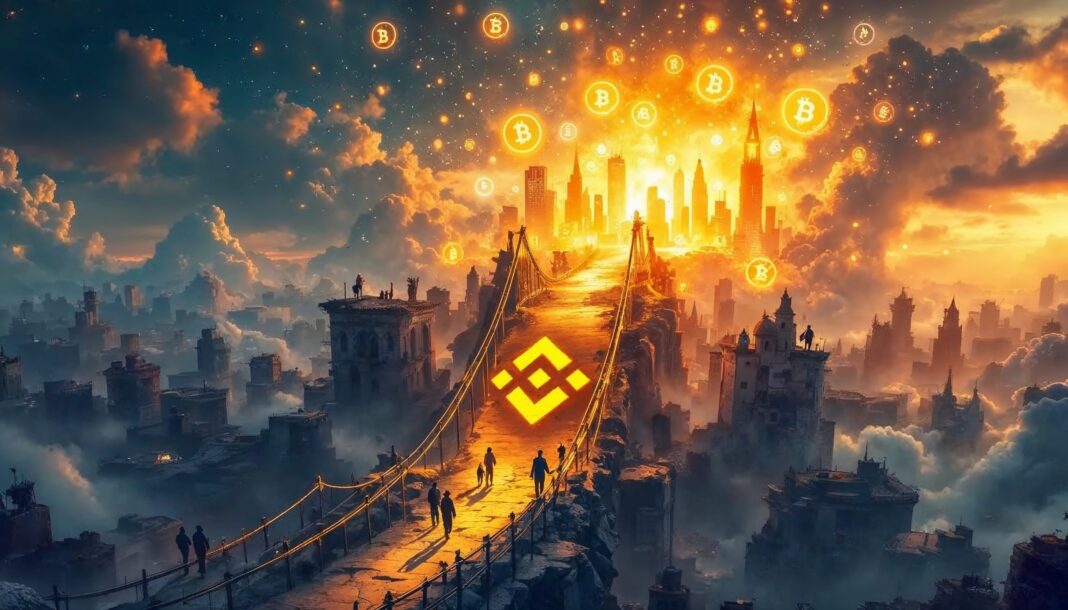Podcast Discussion: Deep Dive Into This Article.
For years, Syria existed on the edge of the internet economy—locked out by sanctions, cut off from global finance, and largely unable to access the tools that define modern commerce. But that is beginning to change.
With the lifting of certain Trump-era sanctions, Binance—arguably the world’s most influential crypto exchange—has now restored access to Syrian users, signaling a profound shift not just in digital finance, but in global crypto geopolitics.
And while headlines focus on access and AML compliance, the real story runs deeper: this is about digital re-entry into the global economy, orchestrated not by the IMF or World Bank, but by a crypto company.
A Country in Economic Isolation
Since the Syrian civil war began over a decade ago, the country has been ravaged by conflict, hyperinflation, currency collapse, and foreign sanctions that essentially cut it off from global financial rails. Banks stopped processing payments. SWIFT transfers became impossible. Even basic access to platforms like PayPal, Stripe, and Visa evaporated.
In this vacuum, crypto became a lifeline—but a fragmented one. Without centralized exchange access, Syrians were limited to peer-to-peer trading, Telegram groups, and gray-market OTC desks. The barriers were high. The liquidity was thin. The risk was enormous.
Binance re-entry changes all that.
From Financial Exile to Web3 Inclusion
With the U.S. Treasury softening its restrictions and Binance following suit, Syrians now have a pathway to participate in the global crypto economy—not just as speculators, but as earners, savers, builders, and remittance receivers.
Here’s what this unlocks:
- Freelancers can now be paid in stablecoins, stored safely, and cashed out on-chain.
- Remittance flows from the Syrian diaspora can skip traditional banks, arriving instantly in USDT or BTC.
- Local businesses can accept crypto for goods and services, finally enabling e-commerce in a region long denied access to global trade.
This isn’t a marginal update. This is an infrastructure upgrade for an entire population.
Binance: Platform or Parallel Government?
Let’s call it what it is: Binance has become more than just an exchange. In places like Venezuela, Nigeria, Myanmar, and now Syria, Binance acts as a de facto financial institution, offering tools that local governments can’t provide and that global ones won’t.
With just a mobile device and a wallet, users in sanctioned or unstable nations are now digitally banked by CZ’s empire, not the traditional global financial order.
Is that dangerous? Maybe. But it’s also empowering. Because in a multipolar world where nation-states are no longer the only economic engines, crypto is offering a form of soft infrastructure—without the politics, but with real-world consequences.
The Regulatory Double-Edged Sword
The return of Binance to Syria isn’t without risk. Regulators are watching closely. FATF and OFAC guidelines still apply. Binance must now ensure that its services aren’t exploited by bad actors, money launderers, or sanctioned individuals.
But this is the tightrope the entire industry must walk: banking the unbanked while not enabling the illicit.
What makes this moment different is that it’s not theoretical. It’s happening live. And the consequences—both for Syrian citizens and global crypto legitimacy—are enormous.
Crypto as a Humanitarian Layer
In regions where institutions have failed or been destroyed, crypto doesn’t just function as speculative capital—it becomes a humanitarian protocol layer.
For Syrian users, access to Binance means:
- A hedge against the collapse of the Syrian pound.
- A permissionless way to receive international aid.
- An on-ramp to Web3 identity, where they can work, contribute, and participate online, regardless of geopolitics.
This is what “bankless” really means: freedom from the institutions that forgot you, not from financial tools themselves.
What This Means for the Future of Crypto Access
The Syria case is just the latest example of crypto penetrating areas abandoned by traditional finance. And it points to a future where:
- Crypto exchanges become global economic portals.
- Web3 becomes the parallel internet for financial inclusion.
- Access becomes the new on-chain civil right.
Binance didn’t just reopen accounts. It reopened participation.
And as the dust settles, we’re left with a powerful realization: crypto isn’t just building an alternate financial system—it’s stitching entire populations back into the global story.
This article reflects the opinions of the publisher based on available information at the time of writing. It is not intended to provide financial advice, and it does not necessarily represent the views of the news site or its affiliates. Readers are encouraged to conduct further research or consult with a financial advisor before making any investment decisions.



